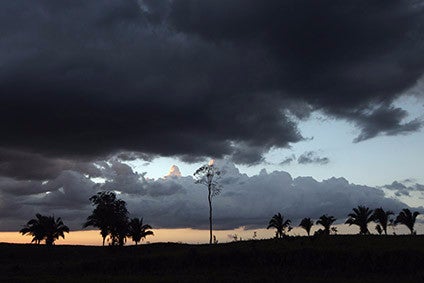
Switzerland-based food giant Nestlé has announced that 77% of its agricultural commodities are verified as deforestation-free.
It suggested this is a key milestone in its efforts to achieve its zero-deforestation commitment.

Discover B2B Marketing That Performs
Combine business intelligence and editorial excellence to reach engaged professionals across 36 leading media platforms.
In 2010, Nestlé made a no deforestation commitment to ensure that none of its products globally would be associated with deforestation by 2020. The company has worked with partners such as Airbus and Earthworm Foundation and its suppliers to identify areas at risk of deforestation.
It uses a combination of tools, including certification, supply-chain mapping, on-the-ground verification and satellite imagery from the Starling system to help it achieve its goal.
Starling is the result of a collaboration between Airbus, Earthworm Foundation and Nestlé. Starling’s technology helps Nestlé understand better where deforestation occurs, what drives it and who is involved. Nestlé is now using the system to monitor its palm oil supply chain.
Magdi Batato, executive vice president, head of operations for Nestlé, said: “Innovation and technology like Starling is accelerating our journey towards zero deforestation. This is transforming the way we manage deforestation risks in our palm oil supply chain – we are using this tool to hold our suppliers and ourselves accountable. We are satisfied with our progress, but there is much more to do. The last miles to go are always the hardest.”

US Tariffs are shifting - will you react or anticipate?
Don’t let policy changes catch you off guard. Stay proactive with real-time data and expert analysis.
By GlobalDataHowever, Nestlé’s claims have been disputed by environmental pressure group Greenpeace.
Richard George, head of forests at Greenpeace UK, said: “The claims made by Nestlé today wholly contradict very recent discussions we’ve had with the company and its sustainability consultants. We know Nestlé continues to trade with some of the world’s guiltiest suppliers when it comes to deforestation for palm oil, soya and cocoa.”





